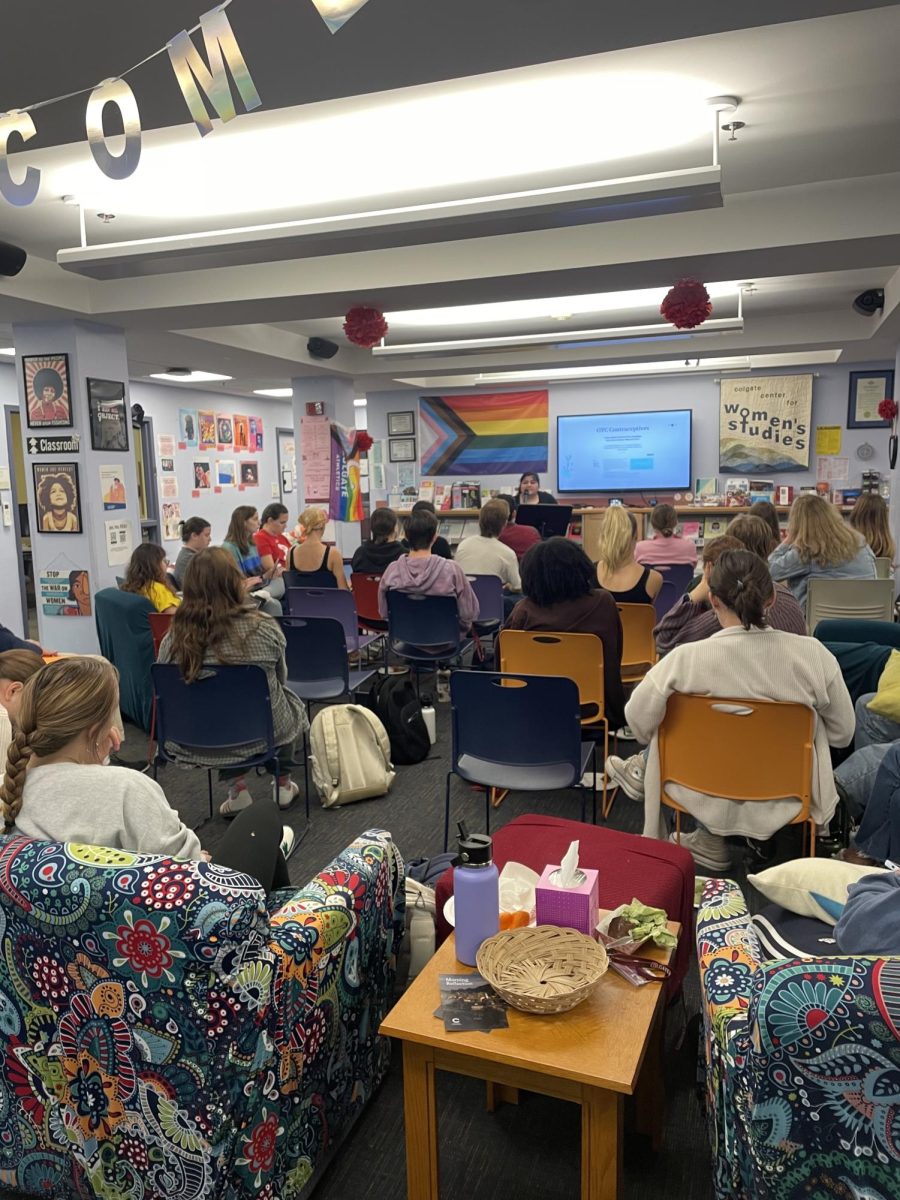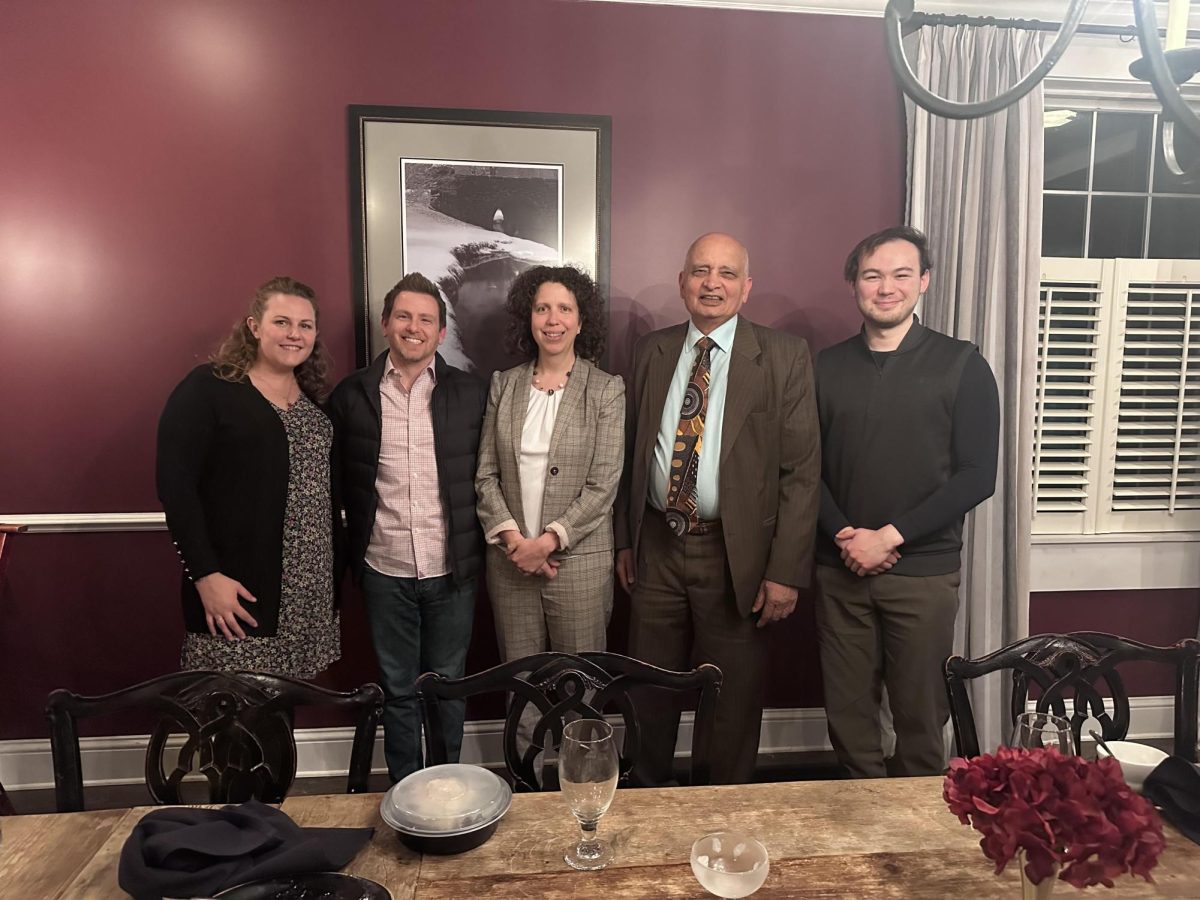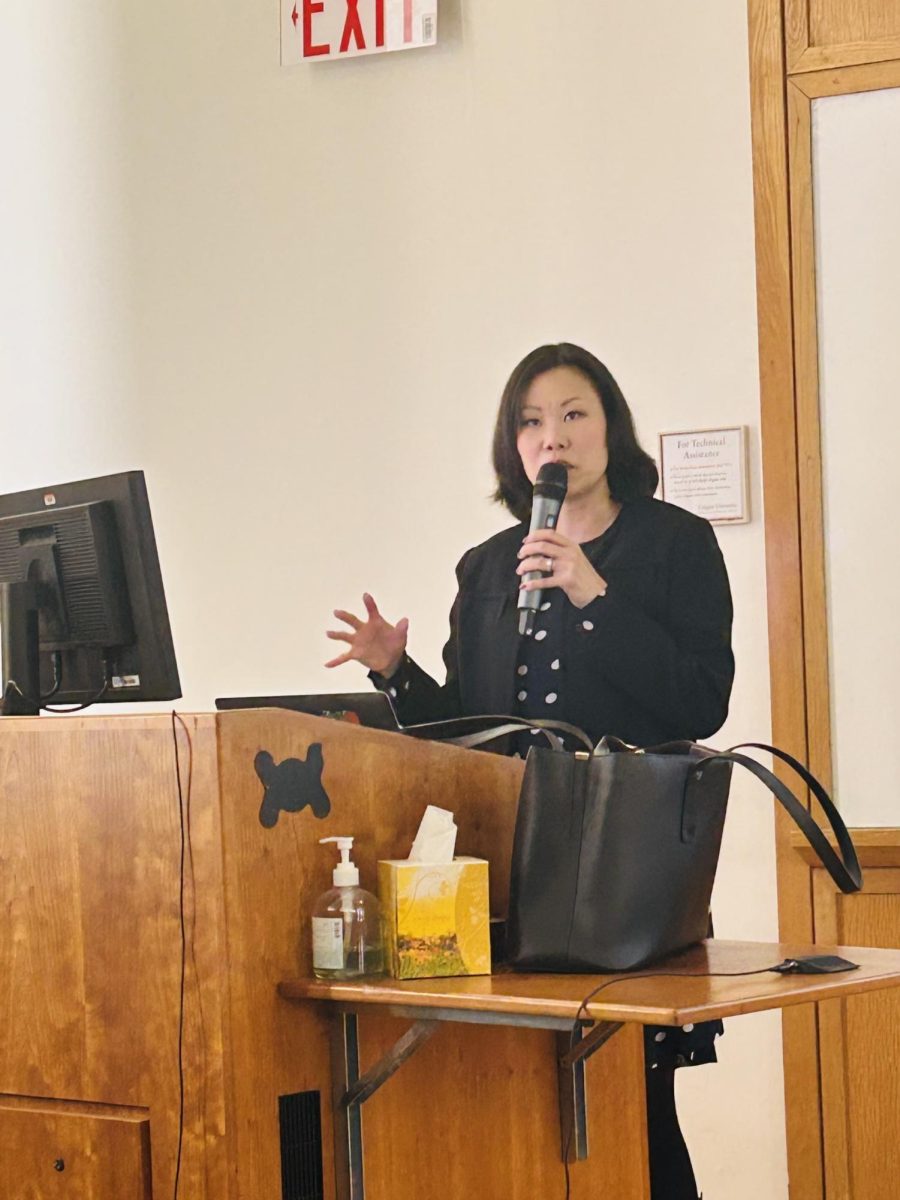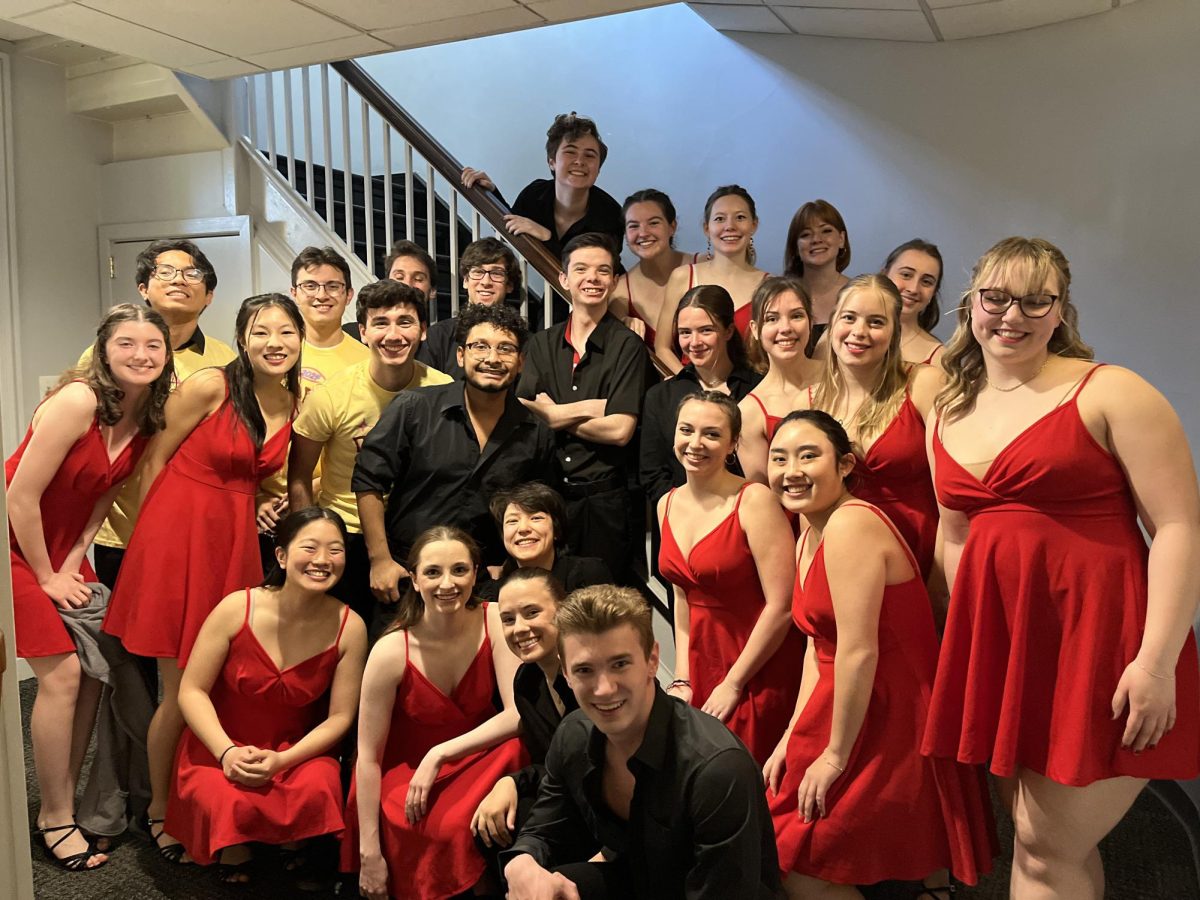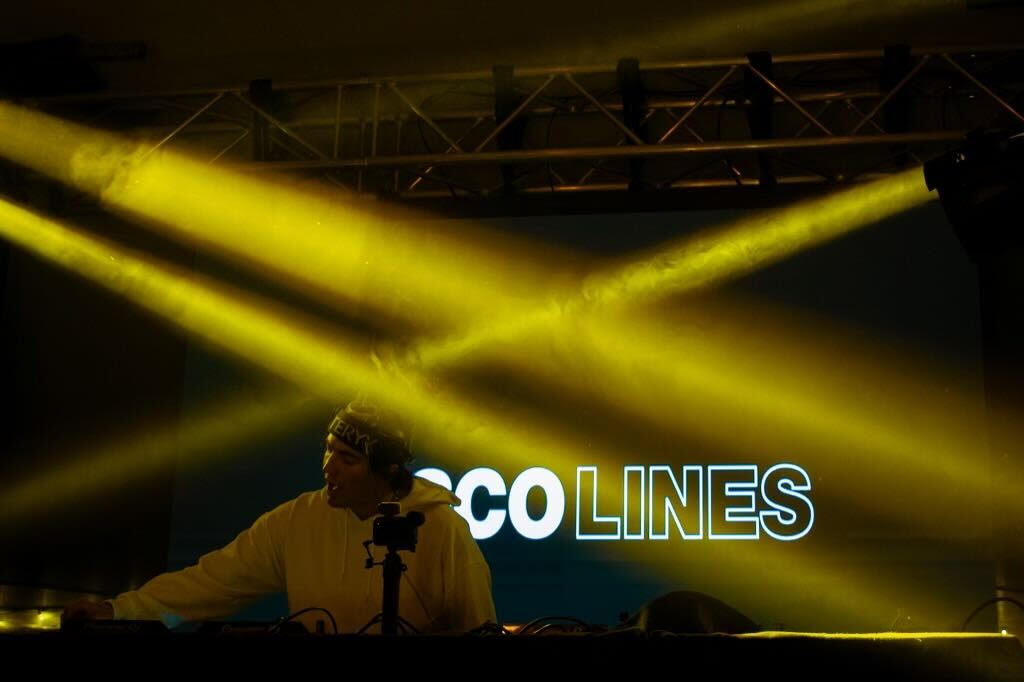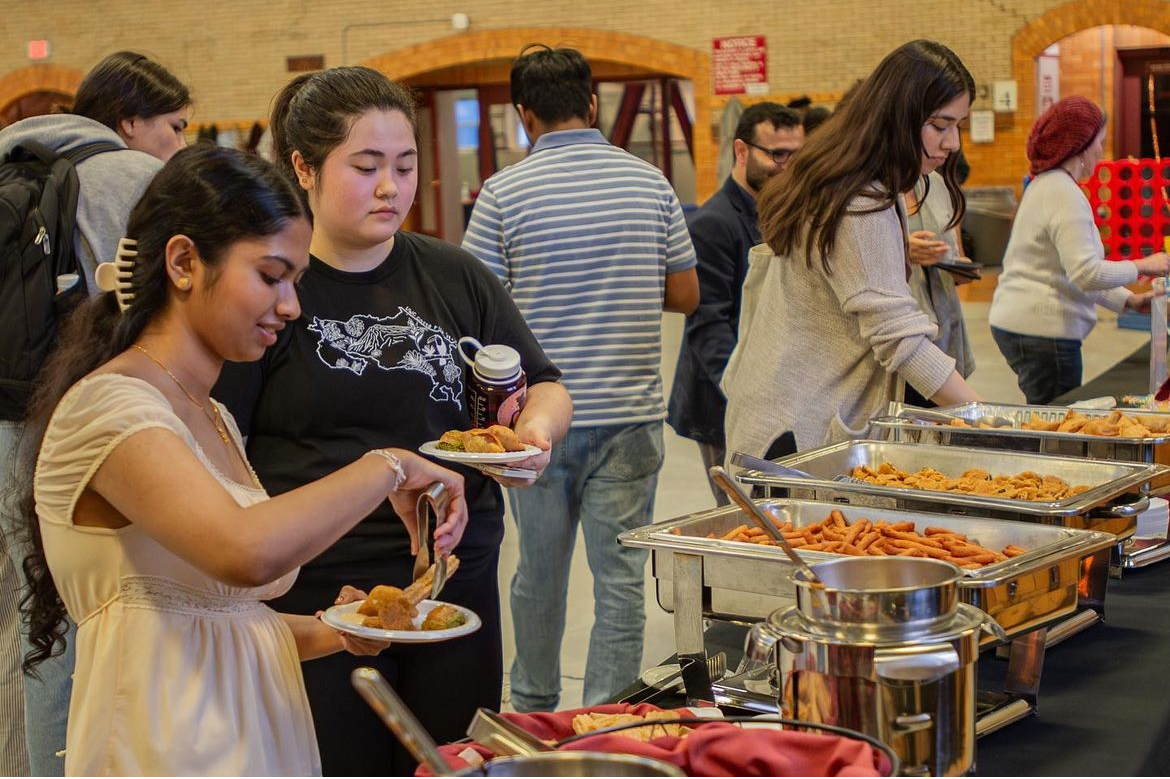The Colgate University women’s studies department hosted a Brown Bag workshop on Tuesday, Sept. 26. Led by Senior Parna Shakouri, the discussion examined the impact and aftermath of the overturn of Roe v. Wade. Shakouri is an anthropology major and global public health and environmental health minor. Her research focuses on public policy and reproductive justice.
In the presentation, Shakouri revealed Roe’s mark on policy, grief and hope.
In 2022, the Supreme Court overturned the right to privacy for abortion and left the states in charge. Shakouri presented a New York Times graph, which showed where each state stood on abortion laws, from full ban to full protection. The graph revealed that location is one of many factors impacting a woman’s ability to receive healthcare, along with race and socioeconomics.
“To me, abortion is an issue that impacts people indiscriminately and I have already felt its ripple effects on our campus and in my personal life,” Shakouri said. “I really appreciated the opportunity to present a Brown Bag on this issue since it has been the topic of my research and my work as an Inter-Group Dialogue (IGD) Intern this past year.”
Shakouri explained that the purpose of leading this discussion was to bring the topic of Roe v. Wade back into campus conversations.
“Like many other current events, abortion has not necessarily been at the forefront of our discussions as a campus. Following the IGD Abortion Dialogue series I led with Professor Meika Loe last spring, I wanted to continue making space and time for us to discuss the issue of abortion and think about the impact of public policy on our daily lives both on and off campus,” Shakouri said. “My hope is for those in attendance to realize some of the ways the overturning of Roe v. Wade has impacted our own community, such as restricting some students’ access to abortion care in their home states.”
During the Brown Bag, Shakouri emphasized how the decision to overturn Roe v. Wade had impacts on mental health.
“There are many concerns relating to the right and the access to abortion in our nation including the disparities across race and socio-economic status,” Shakouri said. “The impact of these issues on our mental health is undeniable; policy changes affect people in intimate ways and push them to continue adapting to ‘new normals,’ which can be challenging and burdensome.”
Sophomore Ellen Weinstock attended the Brown Bag and was interested in the topic of mental health. She personally felt that it motivated her to get involved more.
“I remember the speaker talking about how she noticed that many people stopped talking about the decision after about a week and she found this extremely upsetting. The speaker spoke of her friends saying that they felt deeply depressed or saddened by the news and she […] found that these thoughts overtook her everyday life. I know she also discussed that this made her lose some faith in the United States,” Weinstock said. “For me, I was definitely deeply saddened and disappointed by the decision. However, I found that it motivated me to become more involved in the issues and organizations that supported abortion rights and women’s health. I found the decision made me realize the importance of investing time in organizations and candidates that will enact the change I want to see in the country.”
Sophomore Abigail McGuire also attended the Brown Bag and expressed the depth of the conversation.
“I thought we would hear more about the statistics, but instead Shakouri talked more emotionally, politically and linguistically – conversation rooted in abstracts,” McGuire said.
Shakouri ended the discussion on a positive note, emphasizing organizations that are helping people receive accessible reproductive healthcare.
“I think the discussion had a somewhat optimistic outlook,” Weinstock said. “It did focus on the negative decisions that have occurred in which access and the right to abortion have become increasingly hard. However, I think that she finished the talk with ways that change could still occur and that there are still ways that people can utilize their resources for help and to make changes themselves.”


